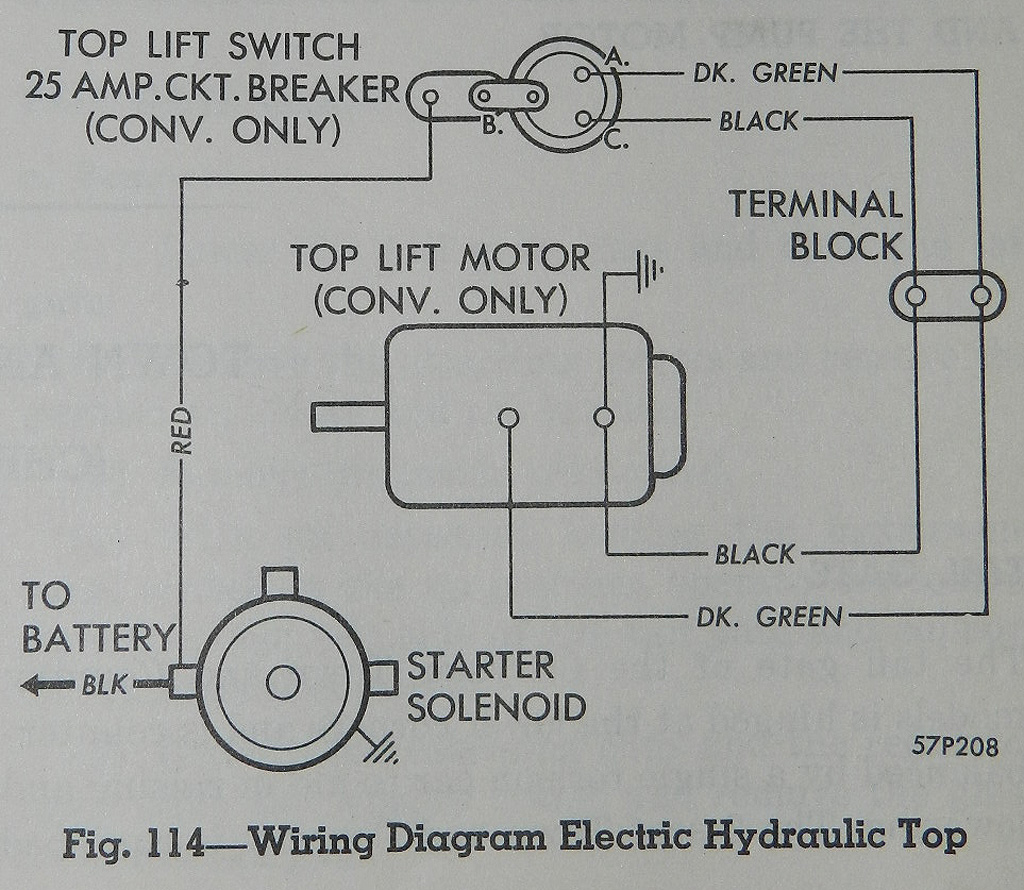|
The top motor isn't working.
Moving the switch finds no noise from the motor, no deflection
from the ammeter. Let's check the service manual for a wiring diagram.
If you do what I did and check the electrical portion of the manual (section 8)
you won't find it. It is in section 23, "Body And Sheet Metal", on page 65
as shown here.

On the next page you find the instructions:

and then this page for
Testing Wires Between the Control Switch
and the Top Motor

and here is an enlargement of the wiring diagram

We tested the switch and it is OK. The feed wire to the switch has volts. Now we need
to move to the pump. Before leaving the switch, might as well clean and polish
and re-letter the printing. I used Testor's white enamel, applied liberally with a fine
brush. Let sit for 15 minutes and wipe the excess off with a towel and alcohol.

A test light on the connection of the feed wires at the pump shows we have
juice to the motor, and says the motor is bad. Hydro-E-Lectric
has new units along with mounting buttons and hose kits. The trick will be access to the motor.
The top boot is held to the body with 3 Phillips screws on the drain plate. With that removed,
the boot material exposes the motor way up by the rear seat partition.

You can see the pump motor. In this picture I have it loosened from its mount
and turned sideways. As it is, I can get to the hose connections at the motor
and I can disconnect the electric feed wires. What I can't do is access the Philips head
screw that holds the ground wire. That screw goes into the metal cross braces, from the
interior side, and is covered by the seat back panel. I thought about cutting the ground
wire and connecting the new ground wire to a new ground. Another day and time, I would have.
Here I decided to get to that ground screw from the interior. That meant loosening the center
console enough to free the separator board, tilting the board forward and accessing the screw.


That exercise did the trick and the pump motor was removed.
I decided not to remove and replace
the hoses since they were still flexible and likely new when Ed had the car restored 20-ish years ago.
The new pump motor arrived from Hydro-E-Lectric. Installation was straight forward although
I was lucky that the system had not lost any fluid and I did not have to deal with filling the reservoir or
getting the air out of the system. They recommend transmission
fluid for the system and that is what I used. Back in the day, Chrysler used brake fluid and that was OK
until things started to leak -- brake fluid being corrosive.
Click here for a video of the pump motor removal.


|